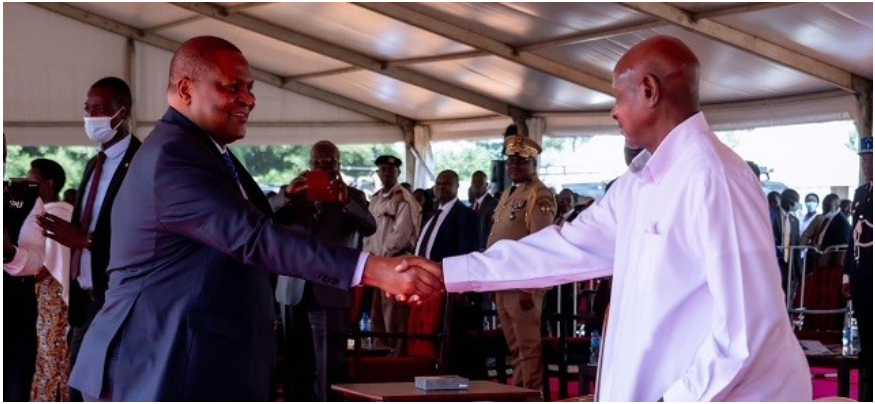 The governments of Uganda and the Central African Republic (CAR) have launched an ambitious road project aimed at linking South Sudan with Central and East Africa. This initiative is a crucial part of the regional infrastructure development strategy that seeks to bolster trade, foster regional integration, and provide landlocked nations with improved access to major markets across the continent.
The governments of Uganda and the Central African Republic (CAR) have launched an ambitious road project aimed at linking South Sudan with Central and East Africa. This initiative is a crucial part of the regional infrastructure development strategy that seeks to bolster trade, foster regional integration, and provide landlocked nations with improved access to major markets across the continent.
The proposed road network will stretch from Uganda, passing through South Sudan, and reaching the Central African Republic, forming a vital connection between East and Central Africa. Once completed, this infrastructure project is expected to transform trade dynamics in the region by creating new economic corridors that will open up access to new markets for landlocked countries like Uganda, South Sudan, and CAR.
The road project will address critical transport challenges that have hindered the movement of goods, people, and services within the region. Currently, inadequate infrastructure has long hampered trade flows between these countries, with high transport costs being a significant barrier. By constructing a modern and efficient road network, the project will drastically reduce travel times and transportation costs, stimulating intra-regional trade and economic growth.
The road will also enhance South Sudan’s connectivity with neighboring countries, contributing to the country’s post-conflict rebuilding process. With increased access to Uganda’s and CAR’s markets, South Sudan will be able to export agricultural products, minerals, and other natural resources, creating new opportunities for economic development.
For Uganda, the road project is part of its broader vision to become a logistics hub for the region. The improved road infrastructure will facilitate the movement of goods not only to South Sudan and CAR but also to the Democratic Republic of Congo (DRC) and beyond. It will enable Uganda to tap into new trade routes and reduce its reliance on existing corridors that are often congested or prone to delays.
This project marks a significant step toward realizing the African Union’s vision of regional integration under the Continental Free Trade Area (AfCFTA). By improving cross-border infrastructure, the road network will contribute to the free flow of goods and services, a key objective of AfCFTA. It will also position Central and East Africa as a more interconnected and economically vibrant region.
The road project is expected to foster stronger political and economic ties between Uganda, CAR, and South Sudan, while also promoting stability by encouraging trade and investment. Enhanced connectivity will help these countries address common challenges such as poverty, underdevelopment, and regional conflicts, through shared economic interests and opportunities.
Despite its promising potential, the road project is not without challenges. Issues such as securing adequate funding, navigating difficult terrain, and ensuring political stability in conflict-prone areas like South Sudan may affect the project’s timelines. However, both Uganda and CAR are committed to working together to overcome these obstacles, with support from regional and international development partners.
Financing for the project is expected to come from a mix of government contributions, foreign aid, and private sector investments. Development banks and international organizations are likely to play a critical role in mobilizing funds and providing technical expertise to ensure the project’s successful completion.
The Uganda-CAR road project represents a transformative opportunity for the entire region. By linking South Sudan with Central and East Africa, the project will unlock new trade routes, enhance regional connectivity, and foster economic integration. It is a bold step toward addressing infrastructure gaps and promoting sustainable development across Africa. As the project progresses, it will likely serve as a model for similar initiatives that aim to improve cross-border linkages and accelerate economic growth across the continent.

